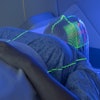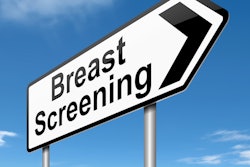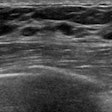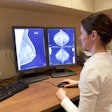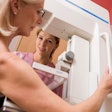There are limited studies that examine breast cancer screening trends in transgender people, according to a report published April 23 in the Journal of the American College of Radiology.
A team led by Millie Chokshi from the University of Miami in Florida found that while studies that do include transgender participants have mixed results, these participants had lower rates of breast cancer screening than cisgender participants.
“More research is needed regarding breast cancer screening of transgender and gender-diverse people to inform the development of protocols that ensure equitable access to preventative care,” the Chokshi team wrote.
Little is known about breast cancer screening trends in trans and gender-diverse people. Most data used in the U.S. come from European studies that have explored trends in this area. The researchers wrote that this is concerning since more data is needed to inform recommendations made by clinicians to their patients and by national guidelines to clinicians.
Chokshi and colleagues analyzed the state of existing research literature, providing a summary report of current breast cancer screening rates in trans adults.
They included 12 previously published studies in their analysis, using the following inclusion criteria: included at least one participant who identifies as a trans or gender-diverse person; at least one trans participant with top-surgery or currently receiving estrogen-based gender affirming hormone therapy; and results report rates of breast cancer screening or mammogram referral. The studies were published between 2015 and 2023.
Of the total studies, six were cross-sectional and six were retrospective chart reviews. Three studies conducted secondary analysis of the Behavioral Risk Factor Surveillance System national dataset, while nine articles recruited their own sample. For the latter, the number of trans participants ranged from 30 to 1,822, while the range for cisgender women was from 242 to 18,275.
Additionally, three studies found lower rates of screening in transfeminine persons receiving gender-affirming care compared to cisgender women. Two studies found lower rates among trans and gender-diverse people compared to cisgender women. And finally, three studies found no differences between the breast cancer screening rates of trans and cisgender participants.
The report authors wrote that these findings highlight the existence of a knowledge gap, which is concerning since trans and gender-diverse people undergo surgical and medical gender-affirming care. They added that this may impact an individual’s breast cancer risk.
The authors also called for future research to bridge the gap existing between gender-minority-focused researchers and breast cancer screening researchers who work with population data as well as longitudinal study design. They wrote that this could help improve research quality.
“The outcomes of this review should implore researchers in the field to aid the call by increasing recruitment of trans and gender-diverse people and reporting outcomes specific to participants so that there is sufficient evidence on which to base guidelines and clinical decision-making followed by clinicians nationwide,” they added.
The full report can be found here.
